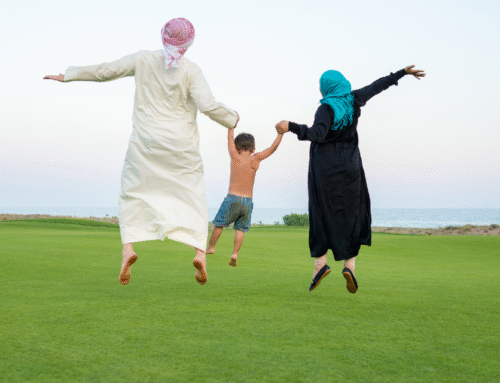As a graduate student, I majored in political science with a focus on international organizations.
I wanted to work for the UN.
I wanted to change the world.
I wanted to have an impact.
Two years later, it was graduation time, and I had to submit a 70-page research paper. Few topics were of interest to me. I eventually chose a subject matter that allowed me to explore my three intellectual passions: politics, religion, and history. I embarked on an academic journey that aimed to compare the UN Universal Declaration of Human Rights and the Islamic interpretation of those rights embodied in the Cairo Declaration on Human Rights in Islam.
Choices
My choice was triggered by my love of Islam, and, in particular, by one Quranic verse I have seen hundreds of times growing up in Egypt. In this verse, God addresses Prophet Mohamed and tells him “And We have not sent you, [O Mohamed], except as a mercy to the worlds.”
In my simple mind, this verse meant one thing and one thing only: it meant that no man-made law could exceed the mercifulness of God. However, this was not the case based on everything I knew of the so-called “Muslim” countries whose laws are derived from Shari’a.
I will not bore you with the details of the research; however, I will summarize my findings. First, Shari’a is not divine. It is as man-made as the Talmud or the constitution of any nation. It is made up of interpretations. Second, Shari’a laws are extraordinarily diverse and different among each country. They differ based on sects, too. The divine laws are clear and defined in the Quran itself. Third, I refer to all religions, and I mean all religions from the second humanity began, as Islam, and they are the true foundation of any Human Rights’ laws. Fourth, all religions have been tarnished by their followers, their interpretations of the text, and their attempt to play the role of the divine. Fifth, and most important, God is much more merciful in his divine revelations—it is the religious institutions that have failed to reflect his mercifulness and love for all of us.
After all, religion is a choice. Believing is a choice.
It Begins with Love
At that point in my life, my relationship with the almighty was solid. On the other hand, I had just ended a committed relationship with a girl whom I thought I would marry; the relationship ended because of religious differences. Her family threatened to disown her if she married a Muslim. This relationship was, in a way, another blessing in disguise, because it led me to question the concept of unconditional love within a family.
I never understood how a family could easily disown their child for choosing a different path. I didn’t understand it, as I was fortunate enough to have a family that always supported my decisions—even if they didn’t fully agree, they at least were willing to listen and reason.
Unconditional Love
I kept pondering the different scenarios that would force my family to make such threats, and I recalled something. I remembered a Craigslist’s personals ad, which was posted by an Arab Muslim man.
The ad was titled, “Gay Arab Man Looking for A Lesbian Arab to Marry.” As a writer, it was easy to place myself in the person’s shoes. I felt his pain. I imagined what it would be like to live a secret life to appease others. I questioned if his search for a wife was an act of love, or it was an act of fear. I imagined myself in his shoes; I imagined the family’s reaction. I questioned the whole concept of unconditional love, especially within a Middle Eastern context, and I found it to be a rare commodity. I also learned most families all over the world are not traditionally accepting of a homosexual child. After all, who wants an outcast for a child?
It was then that the characters were born. I felt the need to make a change. I felt the need to tell the untold story of many who did nothing wrong, yet who are considered outcasts of society and shunned by their own families. I saw it as one possibility to initiate a dialogue of openness and understanding.
The Writing
In the process of writing the story, I felt the need to educate others about Middle Eastern culture and its multidimensionality, which is why the name Osama jumped at me. I wanted to use the negative stigma that accompanies both Osama and Jihad to advance understanding of these two cultural references. Thus, in the book, one will gain great insight to Middle Eastern values and history.
Authoring this story has pushed me to expand my own horizon. I have had to investigate aspects to which I was never exposed. I faced the ultimate tests in life. I questioned my own belief system, and I questioned life as a whole; yet the lessons I have learned while writing this book have been invaluable. I learned the true meaning of unconditional love, what it means to champion human rights, and the importance of treating everyone with kindness and respect.
I was teased—ridiculed—whenever others learned both the name of the novel and the story: my faith was questioned; my merits were questions; and my sexual orientation was questioned. However, the snickering, teasing, and jokes did not deter me. They actually became the fuel to persevere in writing this story. It has exposed the nature of both Islam-phobia and homophobia in today’s world, which I hope will one day soon end as slavery once did.
I am a firm believer in human rights. I am a firm believer that all humans should be treated equally with respect and love. This is not a fight for one group’s rights; this is for all of humanity.


